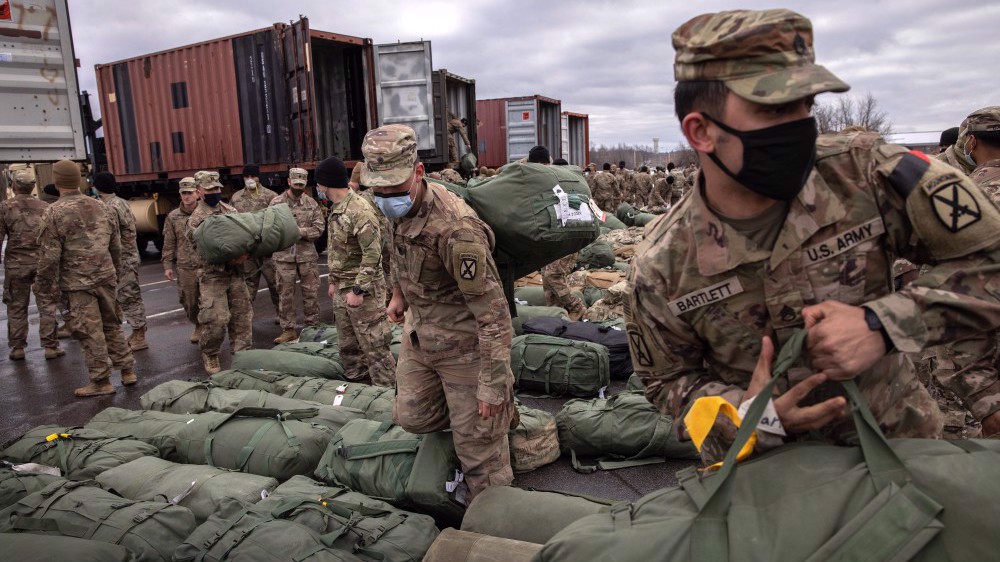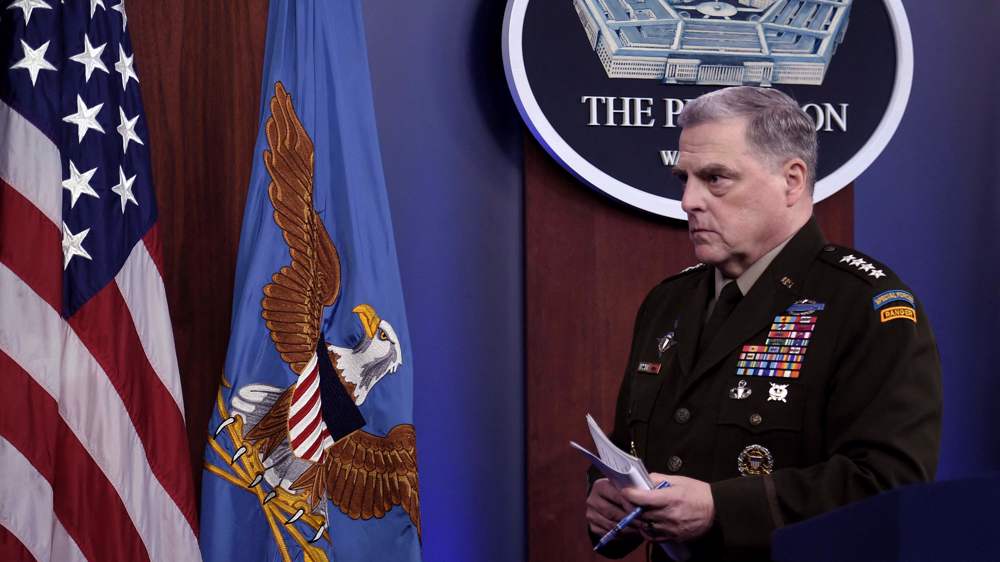US involvement in Afghanistan became no-win situation: Academic
The United States is withdrawing troops from Afghanistan because its involvement there became a no-win situation, according to an American academic and political commentator.
Brian Warby, the associate professor of political science at the University of Northern Iowa, made the remarks in an interview with Press TV on Saturday while commenting on US President Joe Biden’s decision to withdraw American troops from Afghanistan by August 31.
The US military has carried out several strikes recently against the Taliban in support of Afghan forces in the Kandahar province, American military officials have said, despite a peace deal between the militant group and Washington.
The two strikes targeted captured equipment on Thursday night, according to CNN. Several more strikes were reportedly carried out earlier in the week.
The Taliban has been pushing back the Afghan military, and overtaking significant areas of territory as American troops withdraw from the country following a 20 years of war there.
America’s top military general said on Wednesday the Taliban appear to have "strategic momentum" in their sweeping offensives across Afghanistan, as the militants continue to gain more ground in country.
Chairman of the Joint Chiefs of Staff Gen. Mark Milley said that the Taliban controls about 212 of Afghanistan’s 419 district centers, indicating the Taliban's success.
“As I've said in other places, US involvement in Afghanistan has become a no-win situation. A stable, independent, free state was still far from reality, even after 20 years and trillions of dollars spent. On the other hand, withdrawing from Afghanistan will result in tragedy for millions of Afghans, including many who stood by and helped the US. Trump and Biden both came to the conclusion that the cost of withdrawing, while very high, is more or less known and fixed while the cost of remaining is also very high, but uncertain,” Professor Warby told Press TV.
Why the Afghan army is not able to preserve territory despite two decades of training by the US and its allies, the academic said, “The Afghan military is not paid all that well or all that consistently. The institution has received a lot of assistance, but limited institutional memory and structure mean that once those who were trained end their service, some of that knowledge and expertise are gone too.”
Professor Warby was asked how he assess certain Arab regimes' dependence on the US and whether he sees a fate for them like Afghanistan.
“Every situation is different. I don't think that most other Arab states are as fragile as the post-2001 Afghanistan. For example, when the US overthrew the Taliban, it also eliminated a lot of government bureaucracy and institutions. This hasn't happened in other Arab countries,” he said.
What have been the main achievements of US presence in West Asia over the two past decades, democracy or chaos, the analyst was asked by Press TV. He said, “The US presence in West Asia has resulted in both democracy and chaos. A generation of Afghans have had more freedom, education, and political voice than they ever would have received under Taliban rule. Unfortunately, that democracy is also pretty fragile and has come at the cost of tremendous violence and upheaval, which looks set to continue for some time.”

Biden set to lose re-election over his genocidal policy in Gaza: US journalist

Frightful Biden-Trump rematch planned for November: Analyst

US Empire controlling people's minds to maintain hegemony: Scholar
Negative impact of Trump tariffs on UK economy
Student says he fled US due to 'Trump's lawlessness'
VIDEO | Press TV's news headlines
Indian parliament passes bill seen as step to seizure of mosques
US airstrikes target multiple sites across Yemen’s Sa’ada
Trail of death, destruction as Israel expands ground invasion of Gaza
Israeli strike kills three, including Hamas official, in south Lebanon
South Korea's court removes president over martial law controversy








 This makes it easy to access the Press TV website
This makes it easy to access the Press TV website